
This year marks a decade since Brasilito lost its school. The 2012 earthquake damaged it, and the Ministry of Public Education (MEP) hasn’t delivered on providing them with another one, despite multiple attempts by boards of education during all these years.
In the meanwhile, since 2012, the organization Abriendo Mentes is the only one that offers boys and girls from Brasilito the opportunity to go to a “real” classroom. For many of them, it’s the only one they’ve been in during their entire lives.
Abriendo Mentes got its start in the neighboring community of Potrero. Its founders, an American couple, moved to live in Costa Rica and their neighbors began asking them for English classes for their sons and daughters.
It was something very simple, very small, but after a while, almost the whole town was interested in the classes,” the current director, Rachael Sine, described.
“After studying the community and the educational and economic situation a little more, they realized that this support for the community was sorely lacking,” she added. They noticed the same needs in Brasilito and opened a classroom in the town.
The classroom in Brasilito is full of resources: a map of Guanacaste, another of Costa Rica, pencils, books, tables and colored chairs. A painting on the wall has a quote from Nelson Mandela: “Education is the most powerful weapon you can use to change the world.”
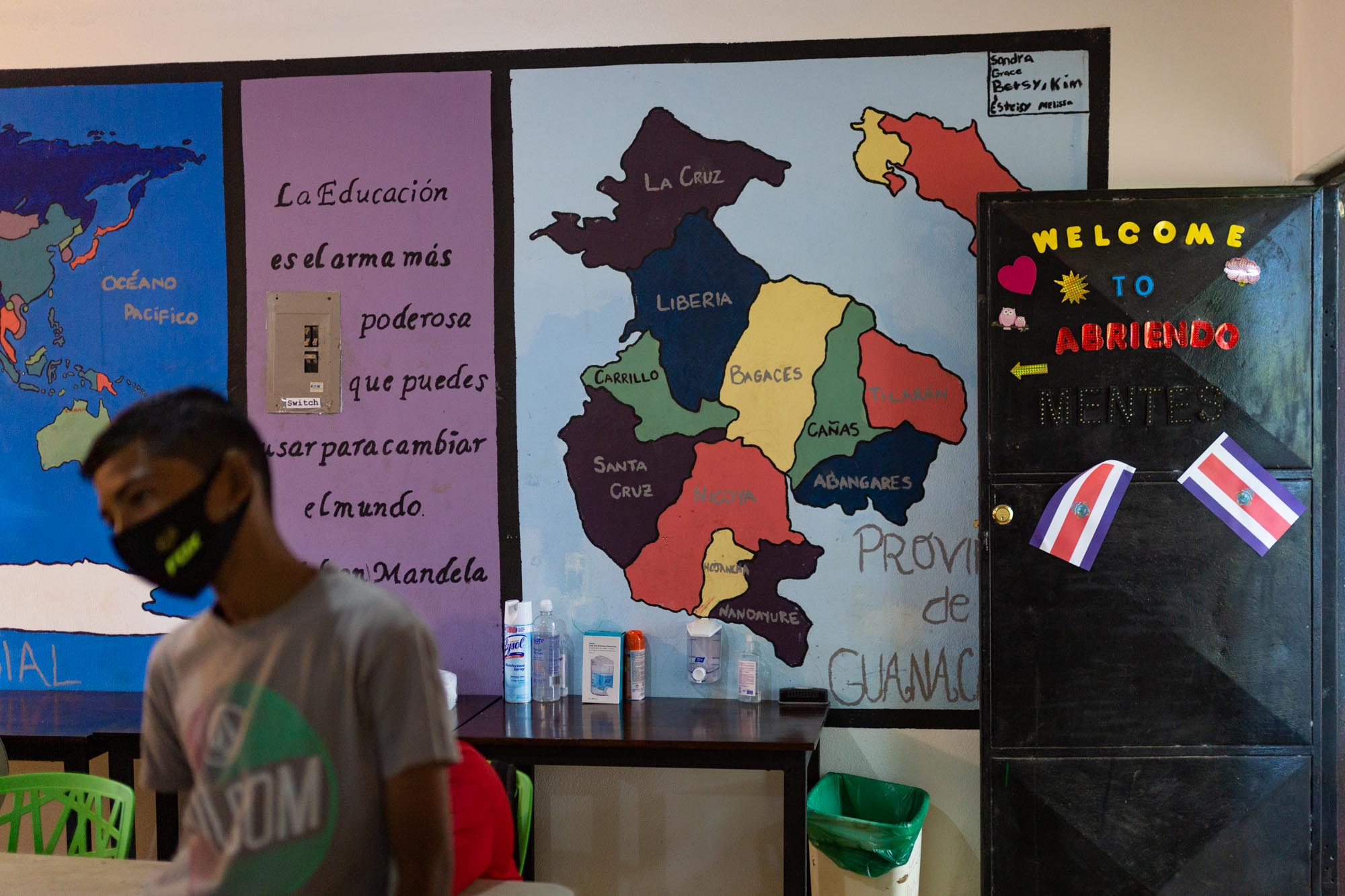
In Brasilito, the association Abriendo Mentes gives classes to reinforce the education of girls and boys. Although they stopped in-person classes for a while, they saw the need to resume them as soon as possible because many were not having success learning on their own from home. Photo: César Arroyo Castro
We visited one of the educational support classes in September of 2021. Santiago, Nayuribe, and a little more than a dozen boys and girls of different school ages were there (Read their stories here), “I like to come here because they teach and they also teach how to speak English,” said Santiago with a smile.
He tends to suggest to his grandmother and his mother that they go live in another town in order to have a normal school. Maybe that’s why he looked so happy that day. He loves to learn and study.
The topic of the day was the division between syllables.
Few in the classroom venture to answer the questions that the teacher asks them out loud. “How do I divide ‘flor’ (flower, en English)?” Santiago holds his pencil between his hand and his head as he analyzes the questions they ask and suddenly answers. “It’s one syllable!”
-And what’s it called when it’s made up of one syllable? asks the teacher.
-Proparoxytone, answers another of the students
-No, that’s the stress of pronunciation. It’s monosyllable. And ‘choral’?
-Two-syllable, says another student over there.
-Bi-syl-la-ble, says the teacher, pausing between syllables.
Other boys and girls are very shy, like Ezequiel and Meylin, siblings aged 7 and 10 who arrived in this community with their parents in 2019 after the sociopolitical crisis broke out in Nicaragua.
For their mom, it’s been a challenge to guarantee their education. “I do what I can with them because I don’t understand the classes very well,” said 26-year-old Nubia. “It’s very difficult for us because I, for my part, don’t know much about anything. I understand some parts and other parts I don’t. I help them solve it as best as I can.”
For her, the biggest challenge is her eldest son, Ezequiel, who is 10 years old and is only in third grade. When the crisis broke out, they were still in Nicaragua and she had to stop sending them to school for a while. In addition, Nubia said that one time, her husband was held at gunpoint, they took off his shirt and told him they were going to kill him. And Ezekiel saw it all.
“Since then, it’s like the child’s mind closed and he can’t learn. He has also been fearful,” she recounted without hesitation while Ezequiel looked at her and lowered his face.
That’s why I never leave him alone, because he might die on me. One day I left him, going to do something quickly, and I found him pale, pale, and another day, he was passed out, so since then, I don’t leave him alone.”
At the time of the interview, Nubia and her family rented a place near Abriendo Mentes, down a dirt road. Their house, built with sheets of metal and Fibrolit walls, has only two rooms. In one room, Nubia and her husband sleep in a bed and her children sleep on a thin mattress, while a cousin of Nubia’s husband sleeps in the other.
Outside, Nubia advertises that she sells four tortillas for ¢1,000 (about $1.50). Her husband does whatever comes his way for work, especially construction.
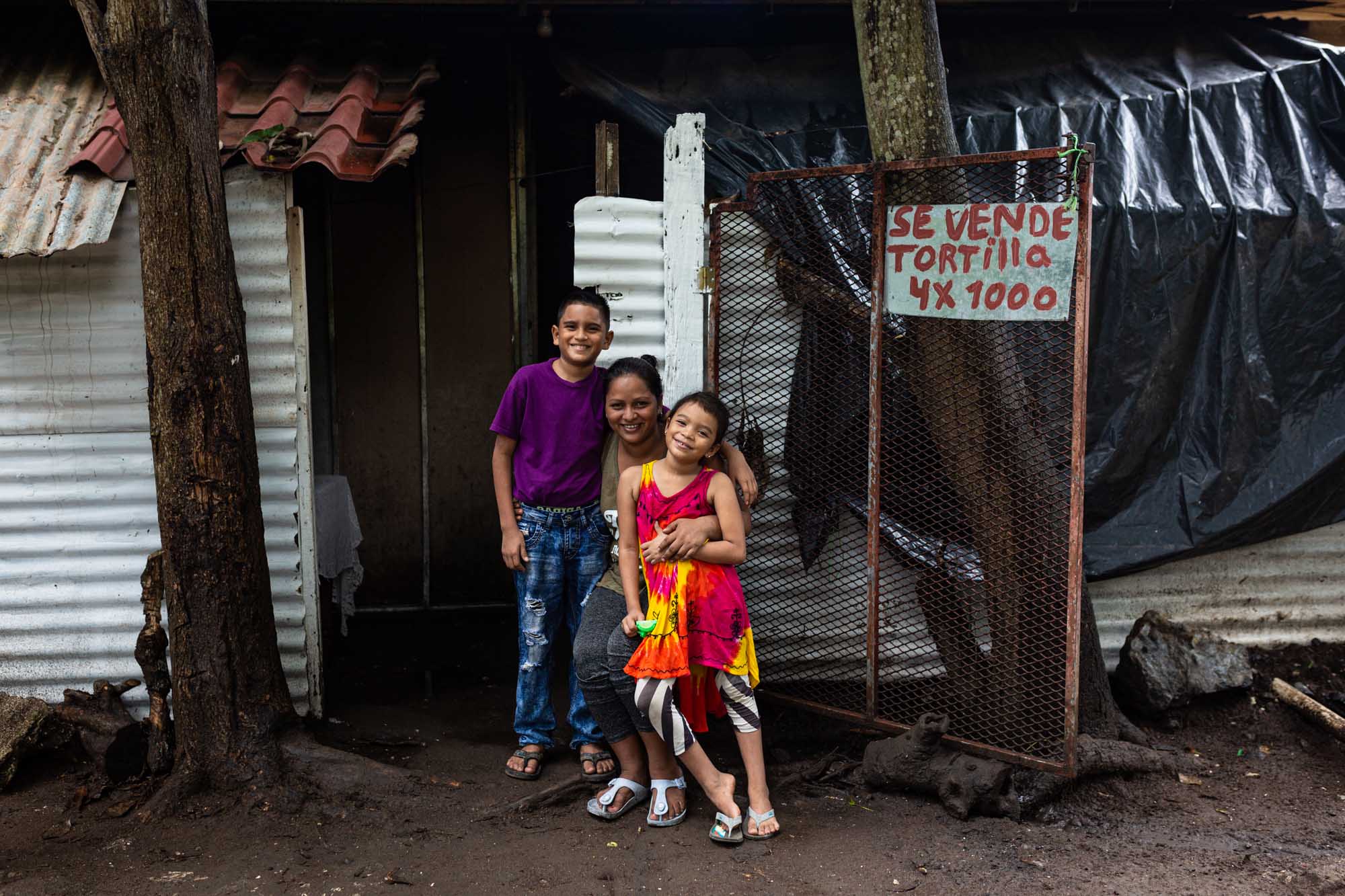
At the time of the interview, Nubia (26) and her children, Ezequiel (10) and Meylin (6), rented this place to live in Brasilito. Nubia sold tortillas from her home to earn money and to never leave her children alone. Photo: César Arroyo Castro
At the time of the interview, Nubia (26) and her children, Ezequiel (10) and Meylin (6), rented this place to live in Brasilito. Nubia sold tortillas from her home to earn money and to never leave her children alone.
Reality for them is very similar to that of many other immigrant families in this community. Some of them returned to Nicaragua as a result of the economic ravages of the COVID-19 pandemic. Immigrants or not, the families of Brasilito have limited resources.
Not having a school has had a serious impact on the educational and social level of the community, said the director of Abriendo Mentes, Rachael Sine. “There are many children who are not learning to read. We have children in fourth or fifth grade who don’t recognize letters or vowels. The kids aren’t learning to focus,” she described.
She said that it’s also a social problem because it’ll be hard for the community to improve their quality of life.
I see some children in the community who are already working and that hurts me, because to me, it means that they’re not going to continue studying,” lamented Sine. “It seems that there isn’t a solution until they have a school and go back to in-person classes.”
That’s how other people in the community see it too. But they don’t want to give up.
One of them is Lucrecia Rodriguez, mother and teacher. She began to give private classes, worried because moms and dads would come to ask her for help because they didn’t understand the Self-Work Guides that MEP distributed during the toughest years of the pandemic.
The day that children around the country returned to class, she walked with three of her children and two of her students to protest in front of the old school in Brasilito. “The truth is that virtual classes have been very difficult. My son is very distracted and that affects a lot,” she said. “Children are the present and the future of our community.”
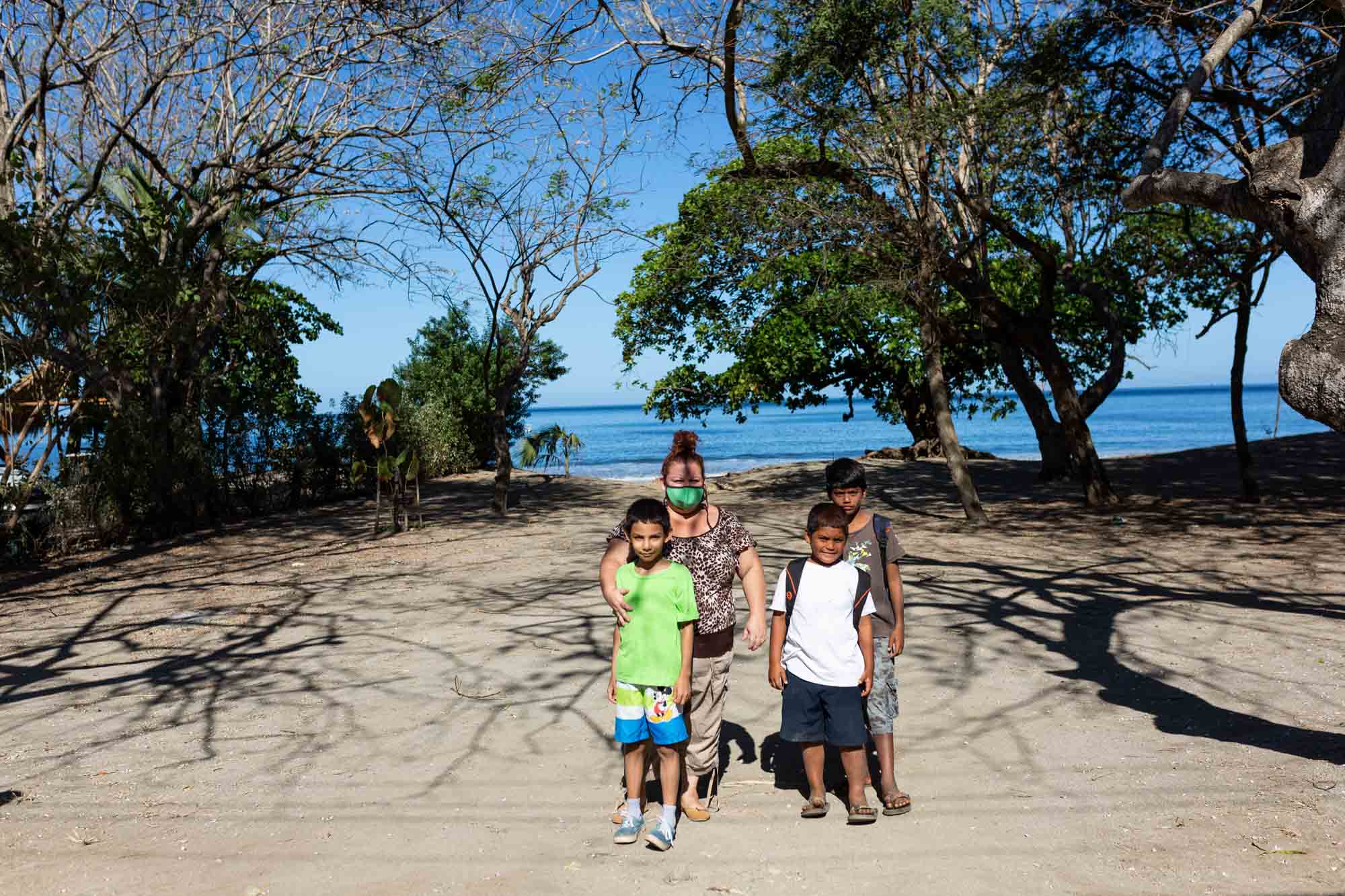
As a result of the pandemic, Lucrecia Rodriguez began to support several children in Brasilito with classes. Parents came looking for her to ask her for help with the material that MEP asked them to complete remotely. Photo: César Arroyo Castro


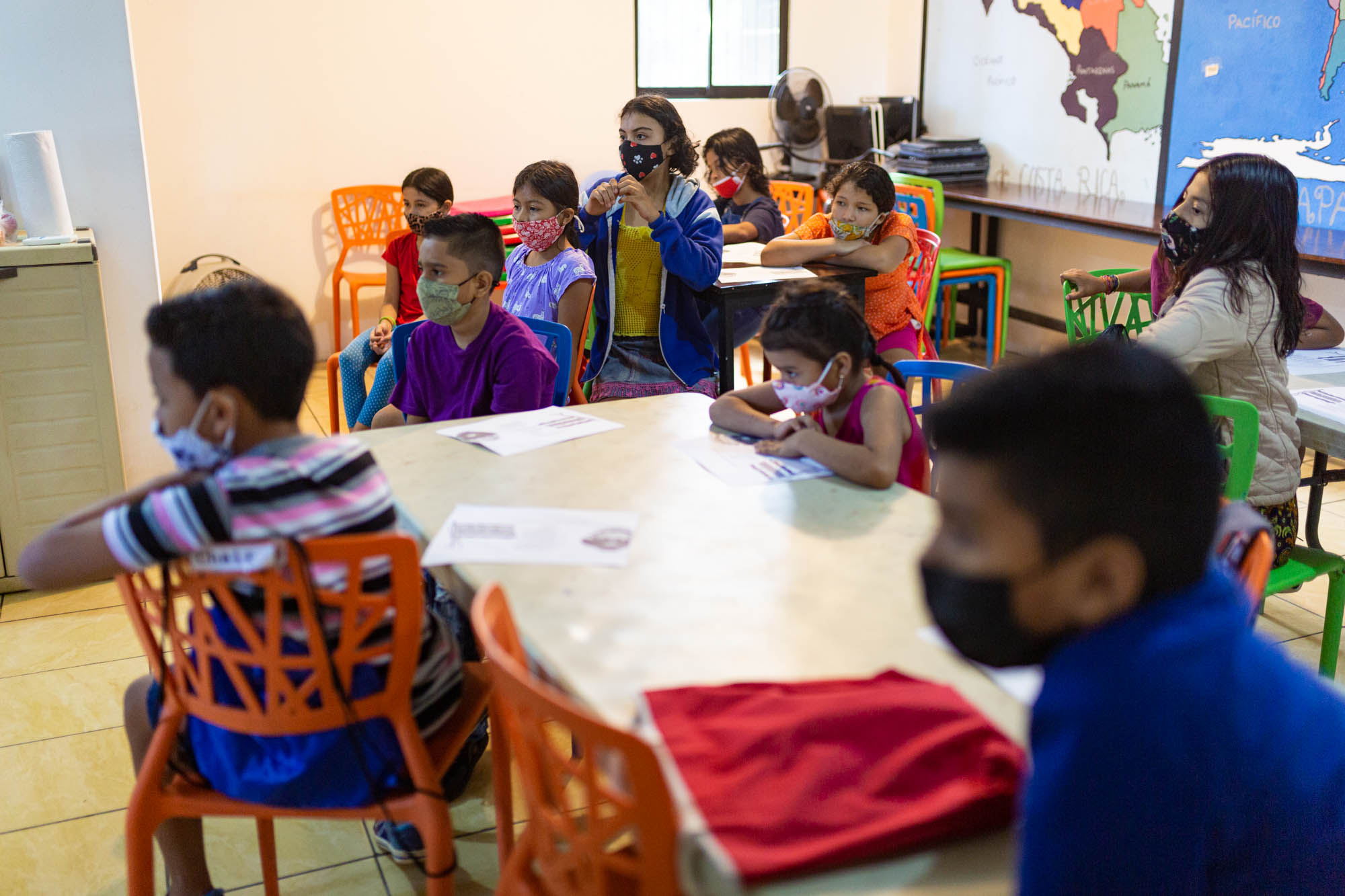
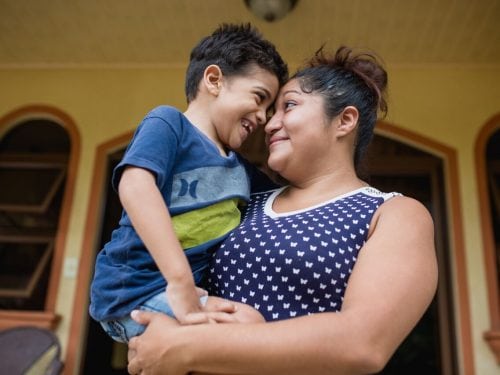
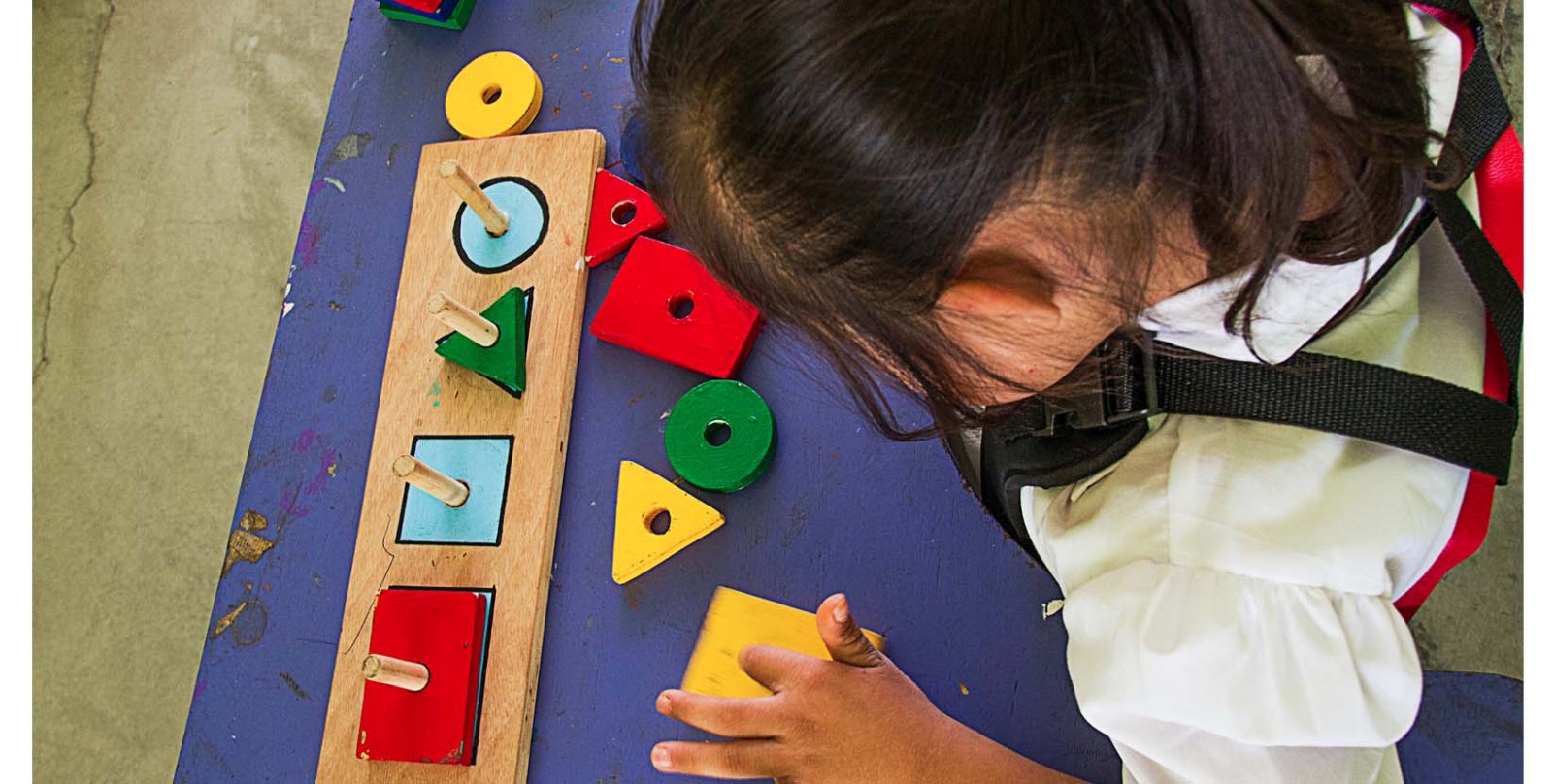
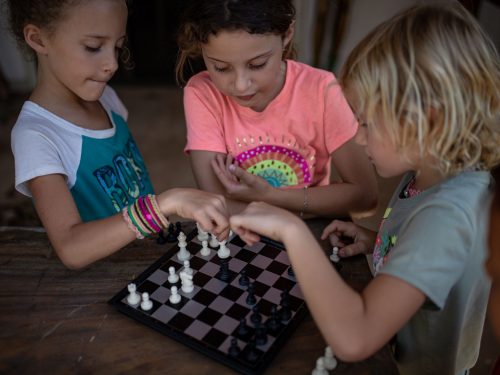

Comments